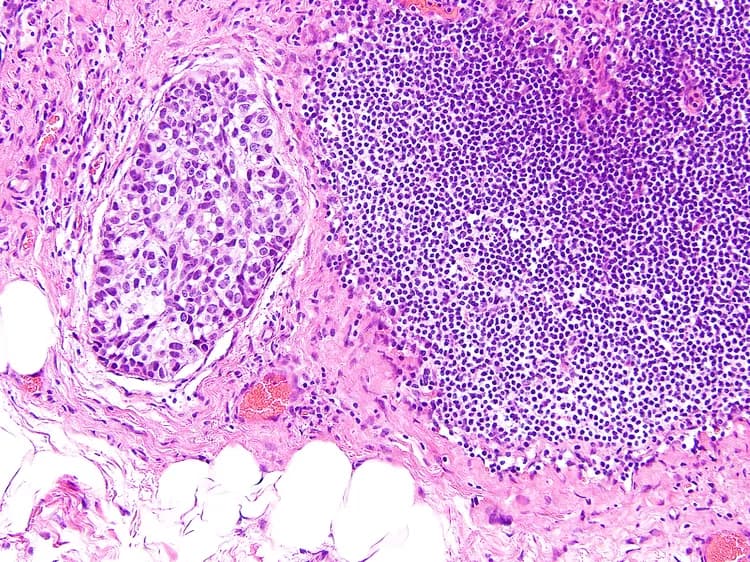
One Of The Most Common Viruses In Humans May Promote Breast Cancer Development
New research reveals that infection with the Epstein-Barr virus (EBV) may put some women at increased risk for developing breast cancer. The findings, published online in the July issue of the journal EBioMedicine, may have important implications for breast cancer screening and prevention.
EBV, one of eight known viruses in the herpes family to infect humans, is also one of the most common viruses and is best known as the cause of infectious mononucleosis. More than 90 percent of the world's population carries EBV, and most individuals experience no effects from infection. In certain individuals, however, EBV has been linked to various cancers, including African Burkitt lymphoma, Hodgkin's disease, nasopharyngeal carcinoma, gastric adenocarcinoma, and leiomyosarcoma. Also, an association of EBV infection with breast cancer has been reported in several studies, but it's unclear how the virus may play a role in breast cancer development and/or progression.
To investigate, a team led by Gerburg Wulf, MD, PhD, a physician scientist in the Hematology/Oncology Division at Beth Israel Deaconess Medical Center (BIDMC) and an Associate Professor of Medicine at Harvard Medical School, cultured breast cells called primary mammary epithelial cells (MECs) in the presence of EBV.
The researchers found that the virus binds to the CD21 receptor on normal breast cells, leading to infection. EBV infection causes the cells to take on characteristics of stem cells, which can keep dividing. When MECs were implanted into mice, EBV infection cooperated with certain cancer-causing proteins to accelerate the formation of breast cancer. When the investigators analyzed the genes of MECs infected with EBV, they found genetic characteristics associated with high-grade, estrogen-receptor-negative breast cancer (an aggressive form of the disease).
"We think that if a young woman develops EBV during her teenage years or later, her breast epithelial cells will be exposed to the virus and can be infected. While for most individuals, there will be no long-term consequences, in some the infection may leave genetic scars and change the metabolism of these cells," explained Wulf. "While these are subtle changes, they may, decades later, facilitate breast cancer formation."
The research indicates that a contribution of EBV to the development of breast cancer is plausible, through a mechanism in which EBV infection predisposes MECs to become malignant but is no longer required once the cells have become cancerous. "The findings further make the case for an EBV vaccine that might protect children from infection and later EBV-associated malignancies," said Wulf.
The above post is reprinted from materials provided by Beth Israel Deaconess Medical Center. Note: Content may be edited for style and length.
Disclaimer: DoveMed is not responsible for the adapted accuracy of news releases posted to DoveMed by contributing universities and institutions.
Primary Resource:
Hu, H., Luo, M. L., Desmedt, C., Nabavi, S., Yadegarynia, S., Hong, A., ... & Yuan, X. (2016). Epstein–Barr Virus Infection of Mammary Epithelial Cells Promotes Malignant Transformation. EBioMedicine.
Related Articles
Test Your Knowledge
Asked by users
Related Centers
Related Specialties
Related Physicians
Related Procedures
Related Resources
Join DoveHubs
and connect with fellow professionals

0 Comments
Please log in to post a comment.